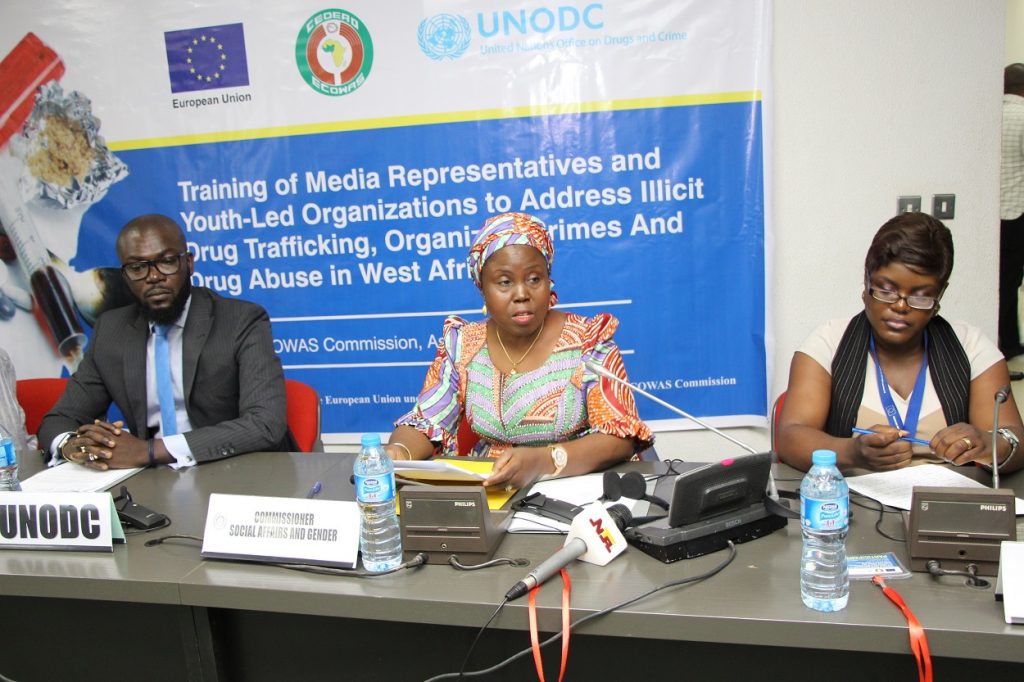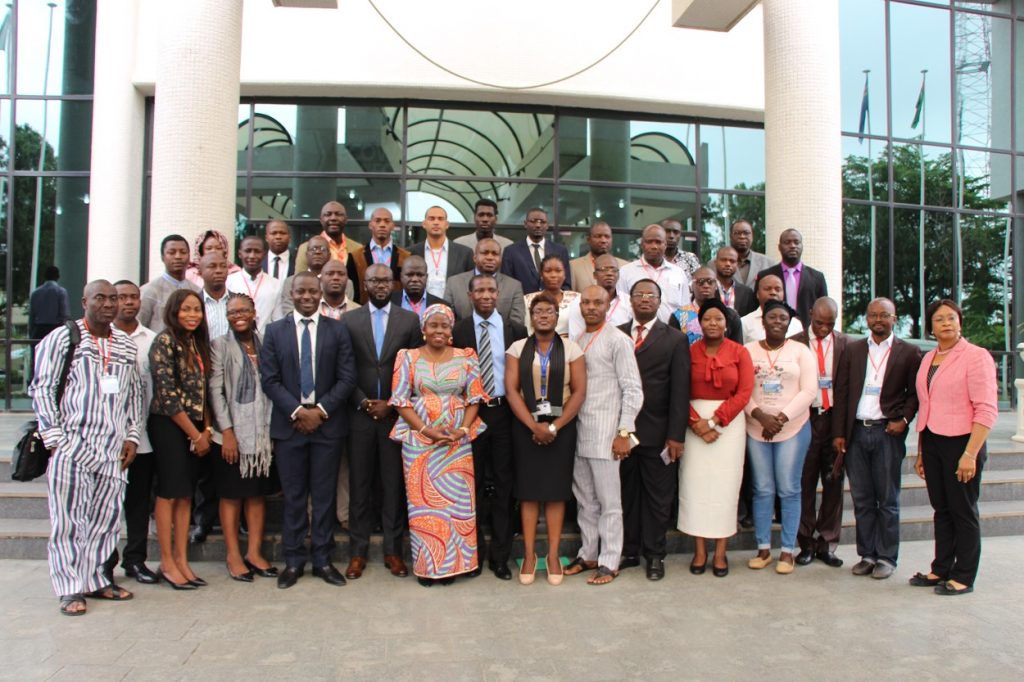ECOWAS tasks media and youth-led organisations on drug trafficking and organised crime
 Abuja 5th July 2017 . The ECOWAS Commission has charged media practitioners, youth-led organisations and Networks to become active partners in the fight against illicit drug trafficking, organized crimes and drug abuse in West Africa. The charge was given by the ECOWAS Commission’s Commissioner for Social Affairs and Gender, Dr. Fatimata Dia Sow in Abuja on the 5th of July 2017 while opening a two-day training of Media/Youth led organisations on the trends and impact of drug trafficking and abuse as well as organized crime. The training is meant to forge, mobilize and propel a regional consensus for effective prevention and control of illicit drugs trafficking, related organized crimes as well as drug abuse. It is also part of activities built around the establishment of the Regional Network of Media Practitioners on Crime Prevention and Drug Control, under the ECOWAS Drug Control Programme which is being supported by the European Union (EU). According to the Commissioner who spoke through the ECOWAS Commission’s Director, Gender and Child Development Dr. Sintiki Ugbe, the severe impact of illicit drugs on health, development, peace and security cannot be overemphasized. Quoting the 2017 World Drug Report, she disclosed that about 190,000 people die every year due to illicit drugs. Drug use, she maintained, damages health in the form of debilitating HIV, hepatitis, tuberculosis and other physical and psychological ailments. “Drug trafficking fuels money laundering, terrorist financing, destruction of families and the fabric of the society, breeding violence, crimes, wide spread corruption and undermining of state institutions” She added. Dr. Sintiki Ugbe noted that ECOWAS is disturbed by the emergence of new trends such as clandestine laboratories which manufacture amphetamine-type stimulants, new psychoactive substances, proliferation of cyber criminality as well as the dark-net. More alarming, she said, is the fact that drugs and crime once seen as a ‘marginal actor on the development stage’ are now viewed as a disturbing obstruction to the achievement of the United Nations (UN) 2030 Agenda for Sustainable Development, particularly Goals 3 on health and Goal 16 on peaceful societies. 
The severity of the drug problem on the individual level was also highlighted to include a devastating impact on youth and child development. The Commissioner disclosed further that a systematic literature review of current drug use patterns and preliminary assessments of reports on drug demand situation and responses in ECOWAS Member States have identified significant at-risk youth populations that abuse substances. This compounds the region’s already worrisome HIV/AIDS profile with dire consequences on socio-economic development. She noted that with the cooperation of mass media as an important socializing agent that helps to create and shape attitudes, values, behaviours and perceptions of social reality, there is still hope despite the identified threats and challenges facing the Region. The hope is linked to the direct EU financial support to the implementation of the Action Plan which has led to the situation where the ECOWAS Commission now has a full-fledged drug control unit with technical staff in all the various aspects of drug control namely demand reduction, legal, law enforcement and cooperation. Besides, a system of data collection- the West African Epidemiology Network on Drug Use (WENDU) has been put into place while The Commission has initiated a number of platforms including a web portal, www.edup.ecowas.int and a newsletter- ECOWAS Drug News for the dissemination of information on good practices, drug and crime policies, drug control and prevention activities undertaken both at the regional and national levels in addition to the technical support of the UNODC and pool of resource persons for technical assistance on drug control and prevention in the region. Head of Cooperation, Delegation of the EU to the Federal Republic of Nigeria and the ECOWAS Commission Mr. Kurt Cornelis represented by the EU project Officer Mrs. Eno Moma urged that the utmost advantage should be taken of the opportunities to network and find common grounds while being mindful of significant resources that would add value to the outlined programme. The UNODC Regional Programme Officer Mr. Cheikh Toure spoke on the need to sensibly use the Media as advocates of drug related issues seeing that the drug phenomenon has become a worldwide matter requiring the mobilisation of energies and resources in all countries to stop its global expansion. Using statistics, he maintained that organised crime organisations take advantage of the weakness of some West African countries and are making inroads into the region using a transnational strategy. |



